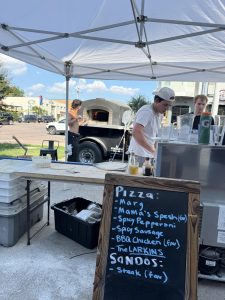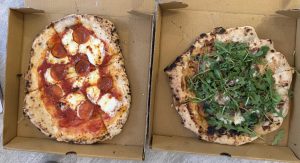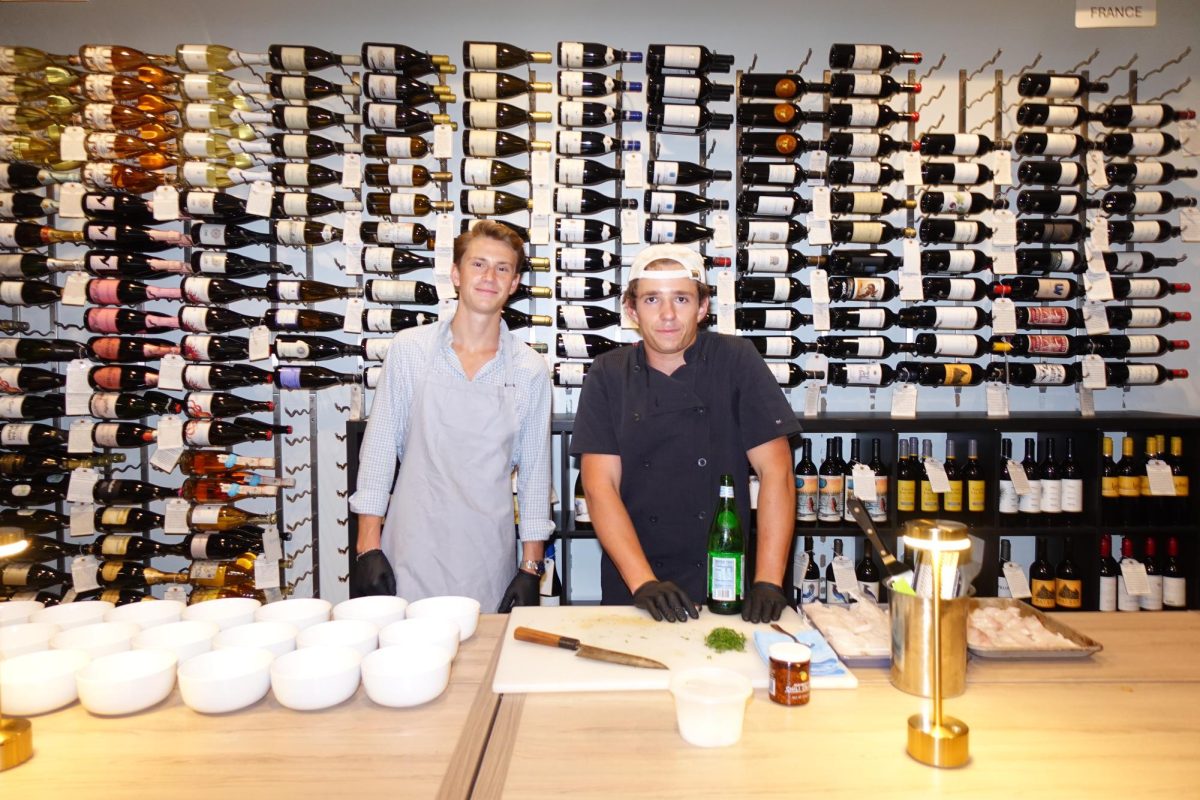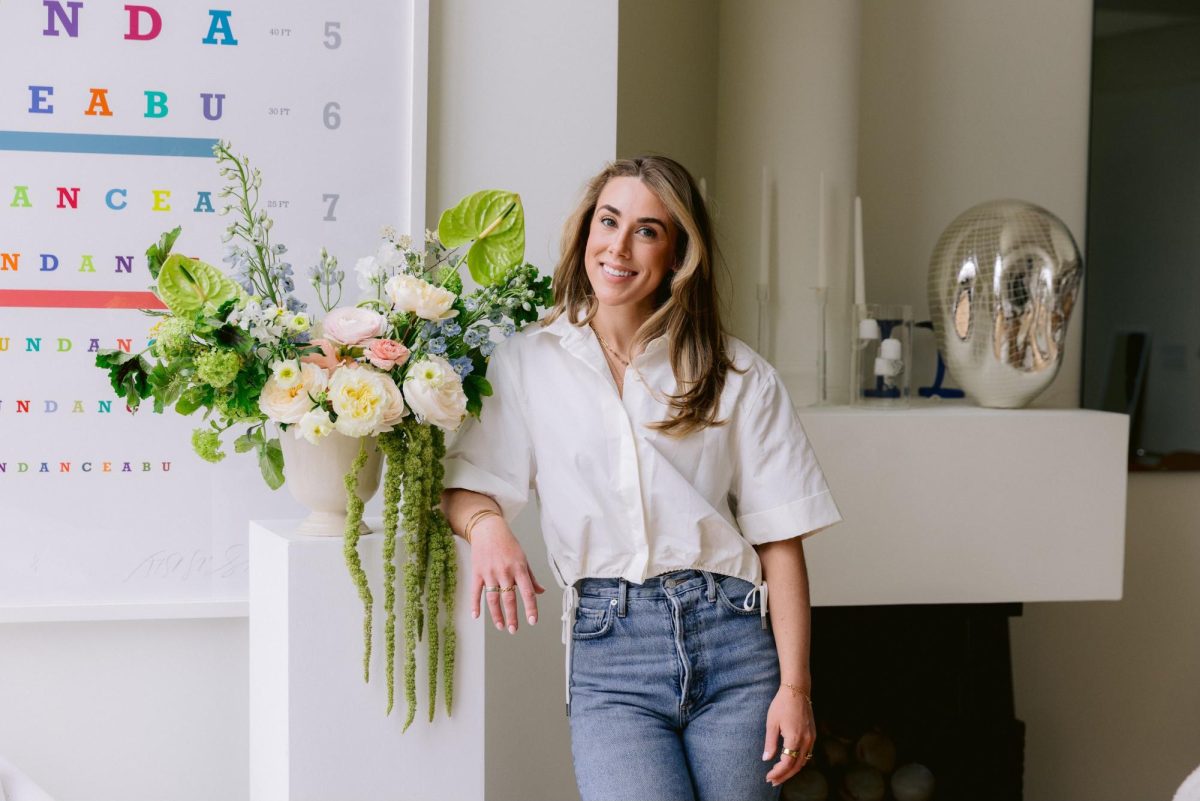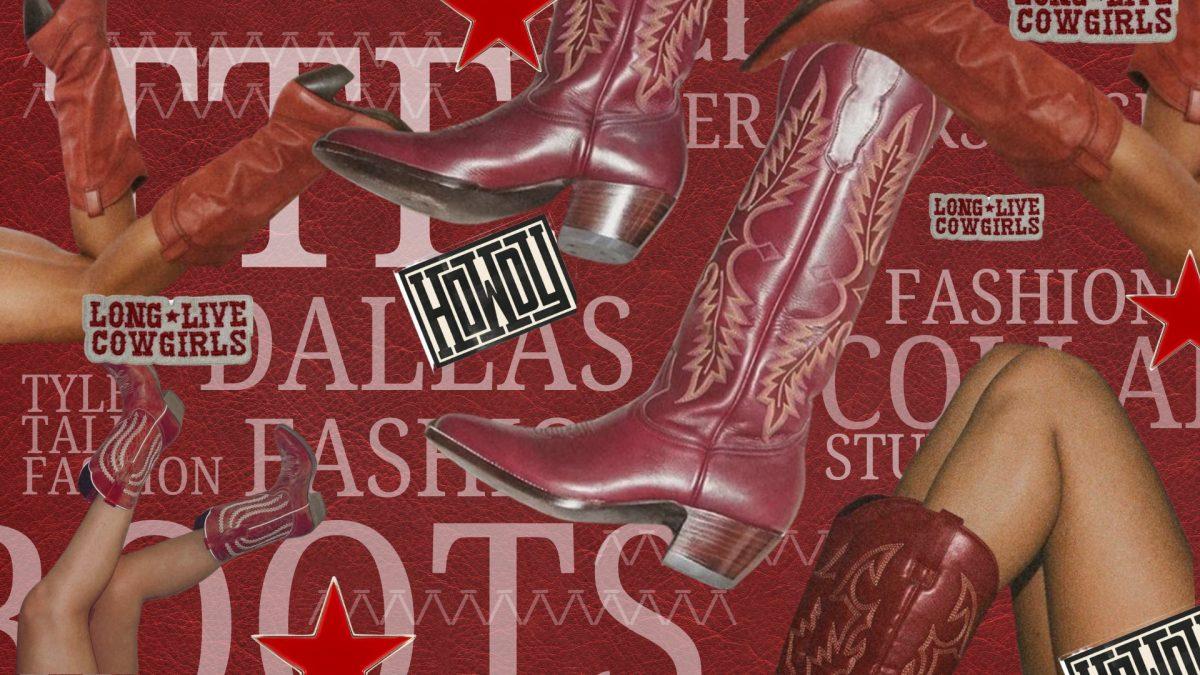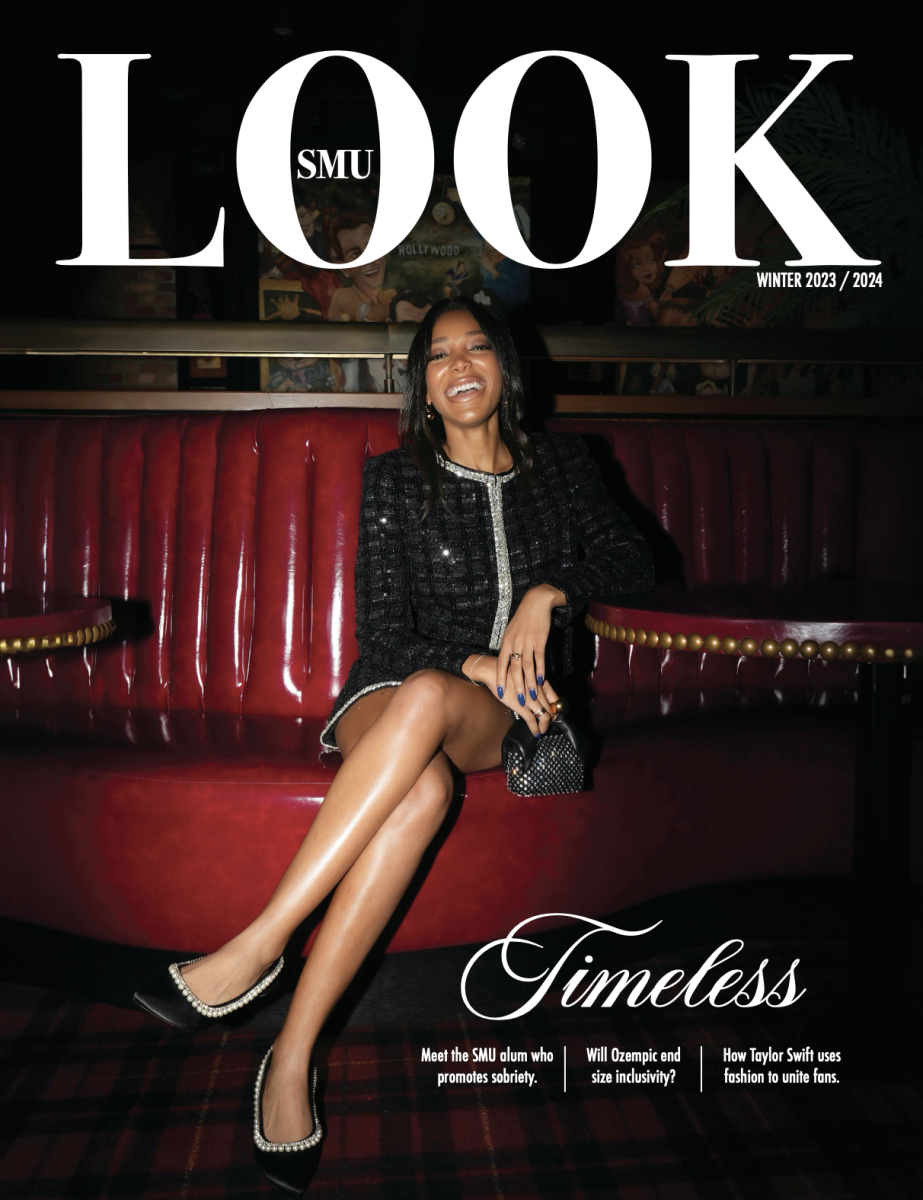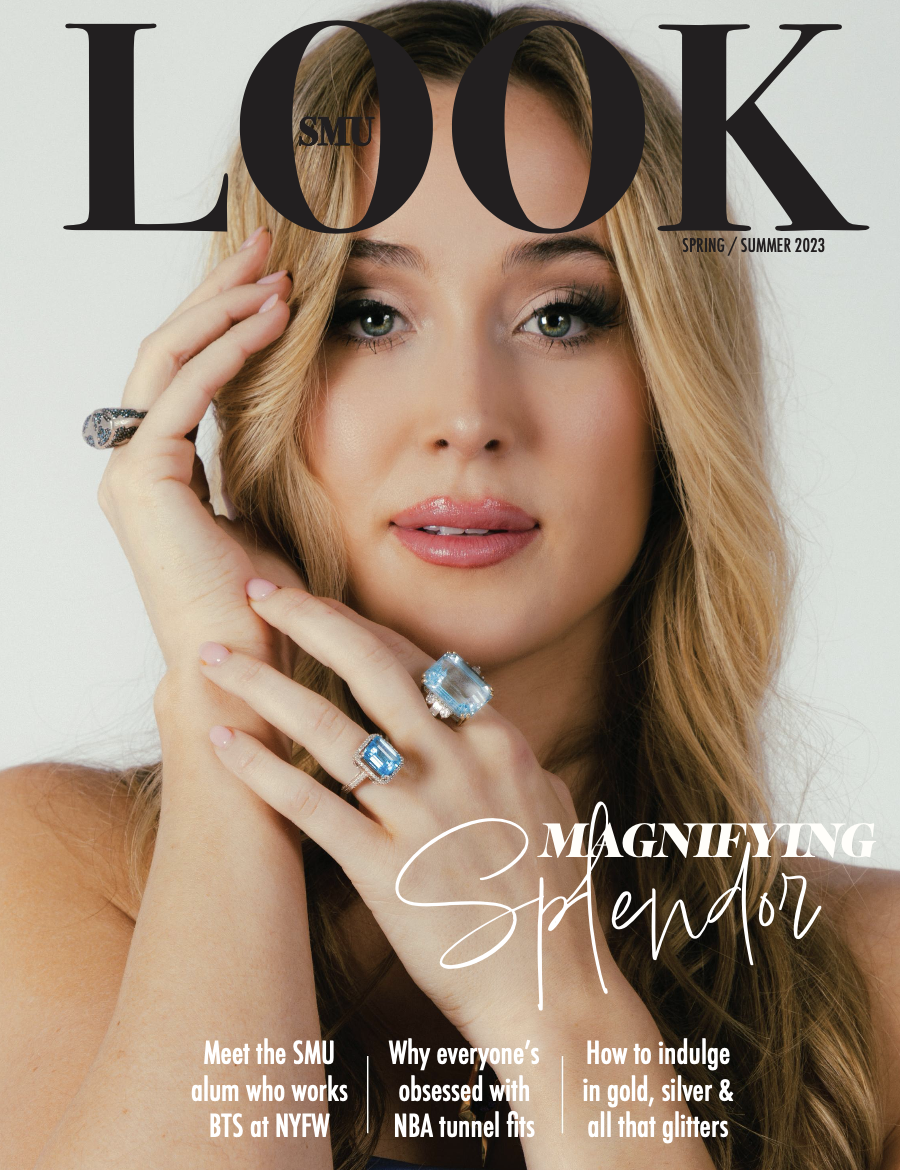By Bella Stryker
The wood-fired oven roars at 900 degrees, and the Barley House patio hums with the blur of a Friday afternoon rush. Servers weave between tables balancing pitchers of beer, while the music from inside leaks faintly through the open doors. Students sit in clusters, but without drinks in front of them – instead, they all hold slices of steaming pizza.
Walking through the patio, tidbits of conversation are overheard. “This might be the best pizza I’ve ever had,” a pink shirted girl declares to the other six girls sitting around her, who nod in agreement and reach for another slice. Other groups are laughing brightly, mere crusts remaining of their own pies.
Moving focus over to the parking lot to the left of the patio, a bustling group stands by a white tent. Under it, dough rounds stickily line the counter, a few young men run around in matching black shirts, and customers lean over the white folding table asking about toppings. The setup is humble — but professional — and in the middle of it all is Luke Froeb.
The Southern Methodist University accounting major moves with quick, flour-dusted hands — simultaneously stretching a new pizza, chatting with a customer, and checking the proof on the next batch of dough. The scene looks less like a college side hustle and more like a professional startup.
Pozzo Loco, the pizza pop-up he founded, has a website, a PR team, and a crew of classmates who call him “chef.” At first glance, it might seem unusual. But Froeb isn’t a typical student.
He trained at elite culinary school Le Cordon Bleu in Paris, was the youngest yacht chef in the Mediterranean, and even split an internship at chef Daniel Boulud’s Dinex Group between financial analysis in the mornings and line work at night. Now he’s applying lessons from cooking and accounting to a food truck that is as much an experiment in business models as it is in recipes. His love of cooking came first.
“My family, we live to eat,” Froeb said. “We’ve always bonded over meals.”
Cooking has been part of his life since childhood. Growing up in California, he started in the kitchen alongside his mother, often choosing to help with dinner instead of playing with Legos. At 16, the story took a turn: while training for the Junior Olympics in sailing, he developed anorexia. In the midst of that struggle, cooking became more than a hobby — it became part of his recovery.
“Part of outpatient therapy was cooking to become more familiar with food, and I think that’s really where it started,” he candidly said.
From there, the cooking got serious. “I spent a lot of COVID cooking. I’m talking like 7-8-9, sometimes even 14 hours a day, doing new cookbooks, working front page to back and treating it more like a textbook,” he said.
Soon, he deferred college for a year to attend Le Cordon Bleu, where he completed an accelerated program in gastronomy and patisserie.
A recent summer in New York underscored the same rigor. At Daniel Boulud’s former three Michelin star flagship, one burned shallot earned him a public dressing-down and an early dismissal. Froeb took the lesson to heart.
“If we’re not putting our best foot forward, why do we even have the right to charge people for food?” he said while reflecting on the lesson.
On the surface, Pozo Loco is about pies — topped with chorizo, onion jam, or even poached nectarines. But Froeb views it as a financial lab. He tracks food costs, labor hours, and waste logs with the same intensity he tracks hydration levels in his dough.
“I really love looking at a restaurant’s financial statements,” he casually mentioned as if he’s talking about his dog.
A single change — like switching from pre-portioned steaks to in-house butchery at a previous job — saved six points of cost, and he lights up telling the story as if it were a winning recipe.
Looking ahead, Froeb wants to combine his two educations. Accounting might not be his passion, but he’s learned its power in the restaurant world.
“Growing up, I didn’t want to be a CPA, but a CPA holds weight in the restaurant industry because not many chefs have CPAs. Not many chefs know how to read financial statements. Not many chefs know how to optimize their labor schedule,” he said.
He’s not interested in spreadsheets for their own sake — he’s thinking bigger.
“I definitely want to go into concept development,” he said.. His dream is to be the next big restaurateur, but he doesn’t know what style of restaurant it’s going to be yet. That, for him, is a backburner problem.
“At the end of the day, it’s profitability that I’m after.”
To stay up to date with Pozzo Loco events, follow their instagram: @pozzoloco.
